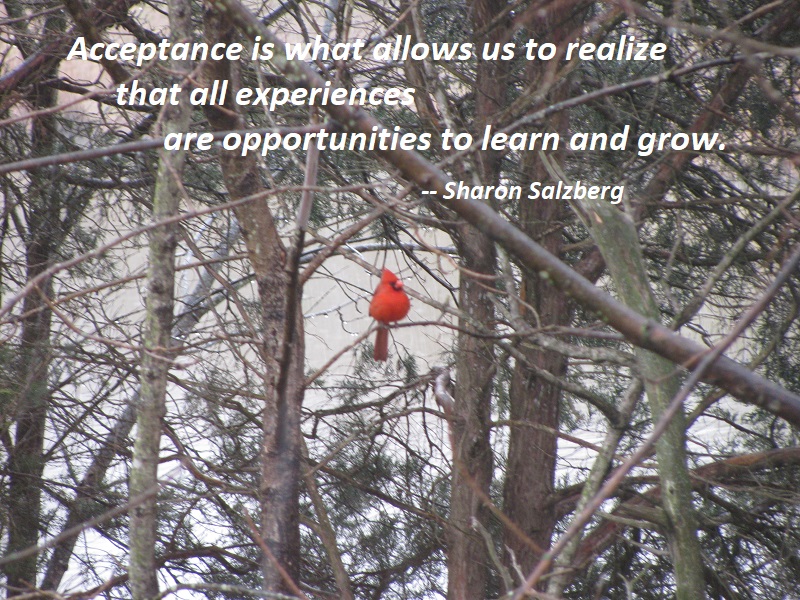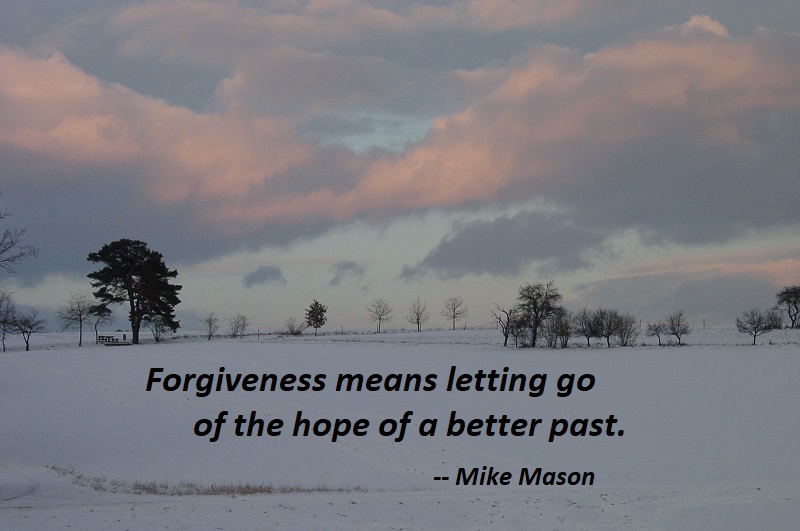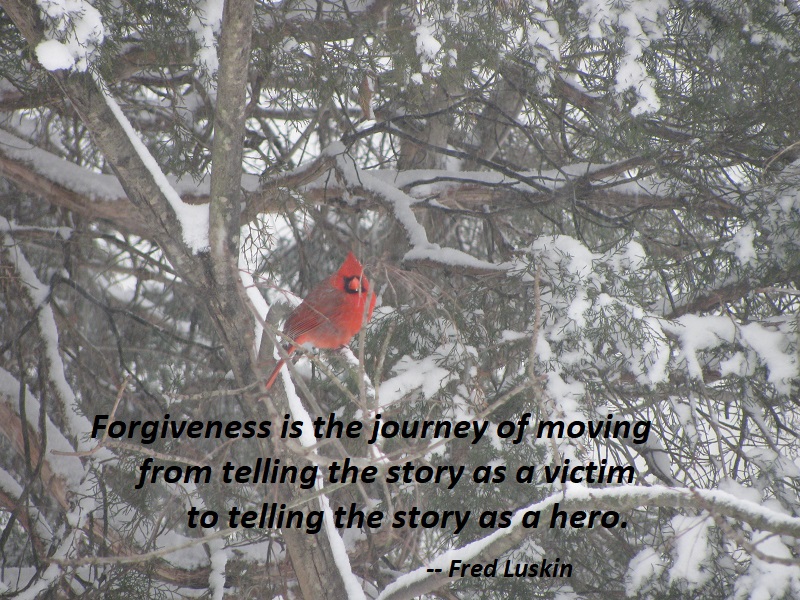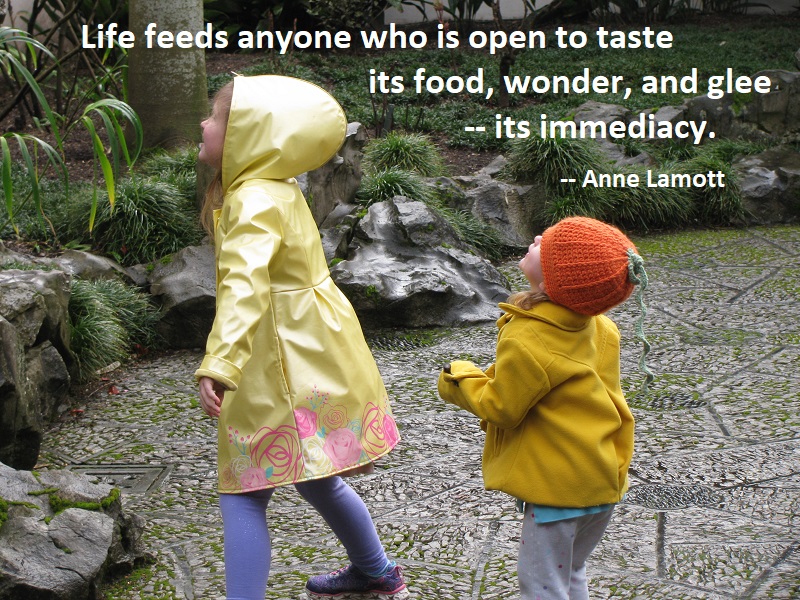Opportunities

Acceptance is what allows us to realize that all experiences are opportunities to learn and grow.
— Sharon Salzberg, Real Love, p. 292
Photo:Â South Riding, Virginia, March 3, 2019

Acceptance is what allows us to realize that all experiences are opportunities to learn and grow.
— Sharon Salzberg, Real Love, p. 292
Photo:Â South Riding, Virginia, March 3, 2019

In the absence of data, we will always make up stories. It’s how we are wired. Meaning making is in our biology, and when we’re in struggle, our default is often to come up with a story that makes sense of what’s happening and gives our brain information on how best to self-protect. And it happens a hundred times a day at work. Our organizations are littered with stories that people make up because they don’t have access to information.
— Brené Brown, Dare to Lead, p. 258
Photo: South Riding, Virginia, January 26, 2016

Joy requires optimism — optimism not only about the future but about the past. The worse our past has been, the more need we have to be optimistic about it. Forgiveness means letting go of the hope of a better past. Optimism, like forgiveness, reaches into yesterday and actually changes what we thought could never be changed. The terrible blunder we made last week suddenly becomes a blessing, a doorway into some new opportunity. Just as regret over yesterday has the power to spoil today, so joy today has the power to obliterate a lifetime of pain. Is such joy an illusion? No, it’s the truth, but it takes optimism to see this. Where there’s been much pain, the Lord will give much joy to more than make up for “the years the locusts have eaten” (Joel 2:25).
— Mike Mason, Champagne for the Soul, p. 135-136
Photo: Sembach, Germany, January 29, 2004

As a church, as the Choir, we must stop at nothing to find our joy. Not in a ruthless, cutthroat way but in a way that is genuine and determined. We choose joy in all its constant delighting. After all, there is no group more practiced at fretting and worry than human beings. Delighting is a real antidote to the chronic toxic stress that folks at the edges carry.
— Gregory Boyle, Barking to the Choir, p. 158
Photo:Â South Riding, Virginia, February 20, 2019

If anything, loss is not meant to ruin us or our sleep for the rest of our lives. It simply prepares us to lose better the next time, to go into life over and over again, knowing full well that this phase, too, will end so that we can take our own unbounded enthusiasm into the next part of coming to wholeness. Whatever that may be.
— Joan Chittister, Between the Dark and the Daylight, p. 105
Photo: South Riding, Virginia, February 10, 2017

A victim is one who often feels helpless to respond to painful circumstances or to control thoughts and feelings. A hero has worked hard to overcome adversity and refuses to be beaten by difficult life events. Forgiveness is the journey of moving from telling the story as a victim to telling the story as a hero. Forgiveness means that your story changes so that you and not the grievance are in control.
— Fred Luskin, Forgive for Good, p. 138
Photo: South Riding, Virginia, February 20, 2019

Dorothy Day loved to quote Ruskin, who urged us all to the “Duty to Delight.” It was an admonition, really, to be watchful for the hilarious and the heartwarming, the silly and the sublime. This way will not pass again, and so there is a duty to be mindful of that which delights and keeps joy at the center, distilled from all that happens to us in a day.
— Gregory Boyle, Tattoos on the Heart, p. 148
Photo: South Riding, Virginia, January 29, 2016

And yet the scandal of the gospel is that one day the God of our theology books and religious debates showed up — as a person, in flesh and blood. And while God indeed delivered a few sermons and entertained a couple of theological discussions, it is notable that according to the Gospels, when God was wrapped in flesh and walking among us, the single most occupying activity of the Creator of the universe, the Ultimate Reality, the Alpha and Omega and the great I AM of ages past and ages to come, was to tell stories.
Lots and lots and lots of stories.
— Rachel Held Evans, Inspired, p. 158
Photo: South Riding, Virginia, January 24, 2016

First, God is not angry at us for our sin. While sin is a serious thing, God is not concerned about sin simply because it is sin. That is, God doesn’t tell us to stay away from sin because sin offends, hurts, or angers Him. Purely from God’s perspective, sin just isn’t that big of a deal. The reason God is concerned about sin and wants all humans to stop sinning, is not because God Himself is offended or angered by sin, but because we humans are hurt and damaged by it. Sin is an issue with God, not because it hurts Him, but because it hurts us. God loves us so much, He tells us not to sin because He doesn’t want to see us get hurt by it. When God says “Don’t” what He is really saying is “Don’t hurt yourself.”
This leads to the second truth about sin to keep in mind: God does not punish us for our sin. Yes, we may get punished for sin, but this punishment is not from God. Sin carries its own punishment. In fact, the punishment that comes from sin is the pain of sin that God wants to rescue and deliver us from. God doesn’t punish us for sin; He works to rescue us from the punishment of sin. God loves us, and doesn’t want us to experience the devastating and destructive consequences of sin, and so He warns us against sin.
— J. D. Myers, Nothing But the Blood of Jesus, p. 54-55
Photo: South Riding, Virginia, February 6, 2019

How can we know all this, yet somehow experience joy? Because that’s how we’re designed — for awareness and curiosity. We are hardwired with curiosity inside us, because life knew that this would keep us going even in bad sailing. We see the newborn energy of the universe most flagrantly in the sea and in the entire Jell-O-y wiggle of a baby. The universe expresses itself most showily as children, and it moves through children of all ages — your nephew, baby Jesus, and Ruth Gordon in Harold and Maude, shimmying at eighty in a cocktail dress. Life feeds anyone who is open to taste its food, wonder, and glee — its immediacy. We see this toward the end of many people’s lives, when everything in their wasted bodies fights to stay alive, for a few more kisses or bites of ice cream, one more hour with you. Life is still flowing through them: life is them.
— Anne Lamott, Almost Everything, p. 63
Photo: My nieces at the Chinese Garden, Portland, Oregon, February 1, 2019